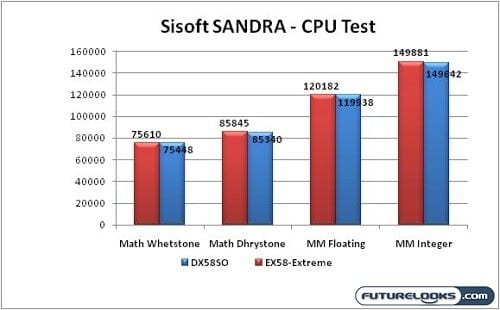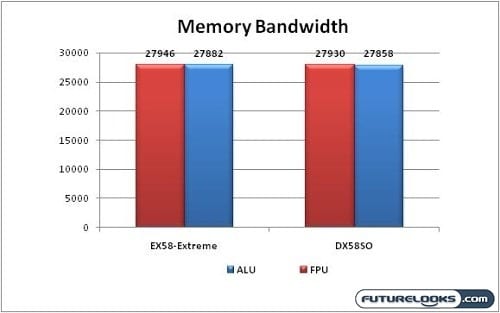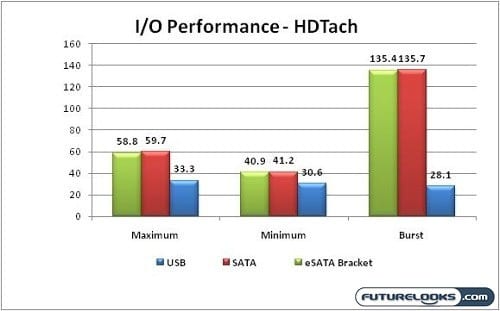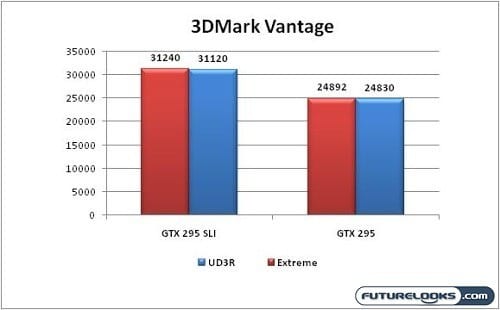Faking It Till You Make It
Starting off the onslaught of tests, we check the EX58-Extreme in with the synthetic benchmarks. We’ve selected a number of benchmarks that are reproducible and that give you an overall comparative snapshot of how this system compares to others.
SiSoft SANDRA
Sisoft SANDRA is a great benchmark program. It helps you compare your own system’s performance to other comparable systems. In this case, we pitted the EX58-Extreme against it’s reference INTEL EX58 sibling.

CPU calculations are right on par compared to the Intel DX58SO Motherboard. The Extreme offers a little extra CPU performance across the spectrum. The platform’s more aggressive design has a lot to do with this.

Memory bandwidth helps support the bulk of the compiling and rendering operations that make the I7 processor so fast. Here, you can see that the board presents a capable platform worthy of supporting 27GB/s memory bandwidth according to SiSoft SANDRA.
HD Tach

Working with the latest drivers and BIOS seems to offer better results on the SATA II drives. The average improved a few Megabytes per second. It’s nothing like we’d expect from an aftermarket RAID controller. But, it’s more than enough for standard system operations.
3DMark Vantage
3DMark Vantage reveals just how well the Extreme platform handles graphic intensive data with one or more video cards.

Again, there’s a slight performance gain in favor of the Extreme due to the aggressive configuration. Also, the Extreme has the ability to operate three video cards versus just two when compared to its sibling, the GIGABYTE UD3R. nVidia’s drivers have improved a bit over the last couple weeks for more than just Vantage. On to the games!
